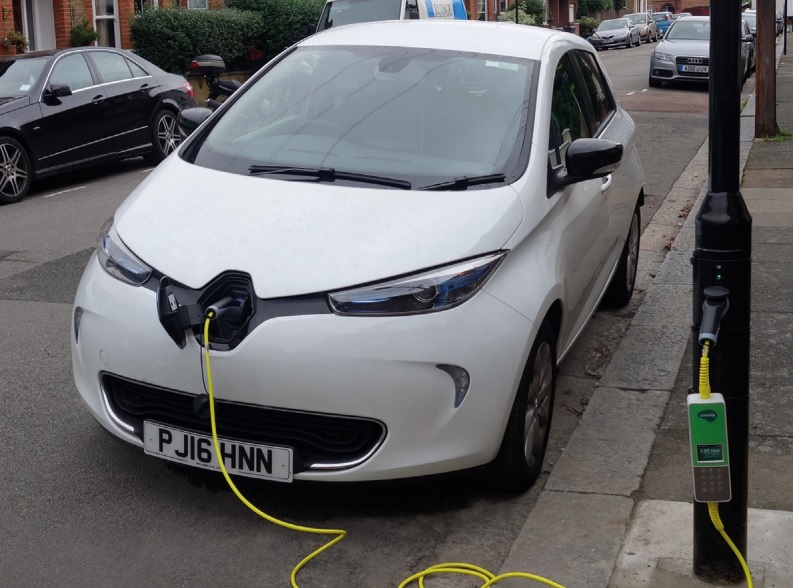Only five councils across the UK have taken advantage of a government scheme to fund the roll-out of public charging points for electric vehicles, prompting ministers to write to local authorities calling for more action.
The On-Street Residential Chargepoint Scheme was launched by the Department for Transport in 2016, offering local authorities 75% of the cost of procuring and installing EV charge points up to £7,500 per unit.
It is available to those seeking to provide charging infrastructure to those who don’t have access to off-street parking, with the remaining funding to be raised from public or private funds.
The Office for Low Emission Vehicles (OLEV) allocated £1.5m of funding for 17/18, with an additional £4.5m available up to March 2020.
However, only the councils of Portsmouth, the Royal Borough of Kensington and Chelsea, Cambridge, Luton and Kettering have sought to make use of the cash. To date the government has allocated just £150,000 of the £1.5 million already on offer to two of these councils, with the other applications currently at assessment stage.
More than a year after its launch, DfT and OLEV have called this take-up “extremely disappointing”.
This has led to transport minister Jesse Norman and minister of state at the Department for Business, Energy and Industrial Strategy (BEIS) Claire Perry writing to councils urging them to take up the scheme.
“We are in the early stages of an electric revolution in the UK transport sector, and connectivity is at its heart.
“Millions of homes in the UK do not have off-street parking, so this funding is important to help local councils ensure that all their residents can take advantage of this revolution,” Norman said.
Councils ‘cannot take on the role of replacing petrol stations’
However, the Local Government Association (LGA) has responded by claiming cash strapped councils should not be responsible for “replacing petrol stations” and rolling out charging infrastructure.
With a £12 billion national backlog of road repairs, an overall funding gap of £5.8 billion by 2020 and a range of competing priorities and statutory responsibilities, LGA transport spokesperson Cllr Martin Tett suggested the private sector should instead lead the way.
“Councils are keen to embrace emerging transport technology for the benefits of their residents and communities, with some councils working through the planning system to ensure developers fund charging points.
“However, they cannot take on the role of replacing petrol stations. Any new responsibilities to ensure there is sufficient electric car charging infrastructure must be matched with adequate funding. Long term this must be a role for the private sector,” he said.
LGA was also keen to point out that just £1.5 million has so far been made available under the scheme, not the £4.5 million alluded to by the government which is not accessible until the start of the next financial year.
Across the UK’s 418 principal councils, this first year of funding would equate to an average of ~£3,500 per council, rising to ~£5,400 annually over the forthcoming period to 2020.
OLEV’s guidance to local authorities explains that the cost for many innovative new on-street solutions can be as low as £200-£500 per unit. The maximum amount it would fund per individual charge point is £7,500, with an anticipation that installations would come in much cheaper in most cases.
However, this remains a paltry sum for all the councils in the UK; in comparison £35 million was awarded to London, Milton Keynes, Bristol and Nottingham alone through the Go Ultra Low City scheme.
“We support the government’s focus on environmentally friendly travel and are keen to see more detail on a long-term properly funded plan,” Tett added.
DfT was asked to comment on the LGA’s claims that councils should not be responsible for expanding public charging networks but failed to respond prior to publication.
A host of other support schemes for electric vehicles have been announced in recent months, including a £400 million Charging Investment Infrastructure Fund to accelerate the roll out of charging infrastructure.
However, details of how this fund will be dispersed have yet to emerge and Clean Energy News understands that plans have yet to be made.
The government has also announced an extension of current grant rates for both the Electric Vehicle Homecharge Scheme, and Plug-in Car Grant which provides up to £4,500 to help motorists make the switch to electric.





